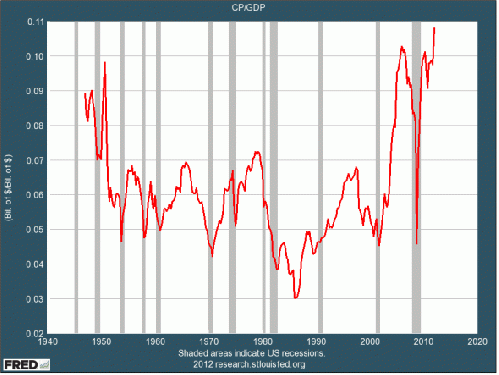President Calvin Coolidge once said, "... the business of the American people is business." He was quoted out of context at the time. His remarks were aimed at newspaper reporters who were inept at covering business news, but this intentional misquotation seemed to sum up his economic policies.
Today this misquote seems prophetic. Political leaders from both parties speak as if whatever benefits business benefits the people. State governments offer tax breaks and business-friendly regulations to attract companies that might bring in more jobs. This is especially true in less wealthy states where poverty rates are high. President Lyndon Johnson's "War on Poverty" has been transformed into pro-business politics and the promise of work for the worthy.
It is true that the poor need jobs, but the causes of poverty are more complex. There is little regard for other factors such as the need for quality daycare, health-care access, job training or transportation. Journalists rarely asks politicians how they plan to help the poor. When they do, candidates talk about their plans to grow the economy. This has somehow become an acceptable answer.
The insurgent idea that serving business interests is the best way to fight poverty arguably arose in the mid 1970s when corporate-interest groups were forming and the business lobby became a powerful influence on Congress. This was the high-water mark of American unions as organized business groups launched campaigns to turn Congress and public opinion against them.
At the same time, these industry-lobbying groups began fomenting hysteria over the growing "welfare state." The poor were poor, they argued, because anti-poverty programs make people dependent on government handouts while government regulations restrict the ability of companies to create jobs for those willing to work. According to their narrative, government needed to spend more resources supporting commercial interests and deregulating markets. President Reagan rode these pro-business, anti-union, anti-government sentiments to the White House in 1980.
The success of the pro-business movement is evident. In this past election Mitt Romney's entire presidential campaign centered around the idea that business prosperity was key to growing jobs and the economy. The California Republican Party explicitly incorporates this thinking in their core beliefs:
"... each person is responsible for his or her own place in society. The Republican philosophy is based on limiting the intervention of government as a catalyst of individual prosperity. Republicans believe free enterprise has brought economic growth and innovations that have made this country great. Government should help stimulate a business environment where people are free to use their talents." [California Rep Committee Philosophy http://cagop.org/inner.asp?z=585A]
In other words, it is the role of government to facilitate the business economy but each individual's responsibility to avail him- or herself of the opportunities businesses provide.
The sufficiency of robust commerce to lift all boats isn't just a conservative or partisan idea. It is expressed and pursued often by Democrats as well. In this last election even President Obama avoided talking about the poor by referring to them as "those aspiring to be middle class." There was almost no mention by either party of how they would accomplish this beyond trying to grow the economy.
So how well is our pro-business politics working out for the poor? This should be an empirical question that can be tested by examining the data. Are business interests and the interests of the poor perfectly aligned? Are there points of departure where the needs of some folks cannot be met without compromising some business interests? Most importantly, does the data show that when businesses are doing well there are more jobs and better wages?
Profits, Employment and Wages
Corporate profits are a measure of how well businesses are doing, so conventional wisdom would say wages and employment should rise and fall commensurate with corporate profits. The hypothesis is that when companies do well there are more good-paying jobs and therefore less poverty. Is there evidence to the contrary?
In June of 2012, the St. Louis Federal Reserve released data showing a number of economic indicators over the last 71 years. Using their report, the graph below plots corporate profits (CP) as a percentage of gross domestic product (GDP) from 1940 to 2011. GDP is total value of all the goods and services sold and a good measure our economy. The shaded areas represent periods of recession. This graph shows that corporate profits rebounded since the 2007 recession and are at the highest level since 1940. The recession is clearly over for corporate America.
Corporate Profits to GDP by St. Louis Federal Reserve
Does it therefore hold true that robust corporate profits mean more jobs? The next graph plots the number of employed Americans as a percentage of our population. This graph uses an employment-per-population percentage because the population doesn't stop growing during recessions. A fair comparison over time has to incorporate population growth for the same reason dollar comparisons over time have to factor in inflation.
Civilian Employment to Population Ratios by St. Louis Federal Reserve
(Note: You can view every article as one long page if you sign up as an Advocate Member, or higher).







